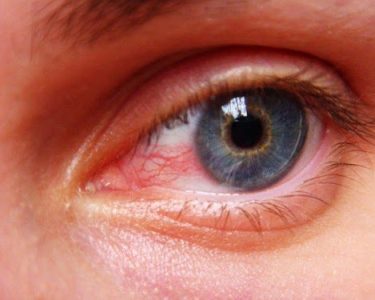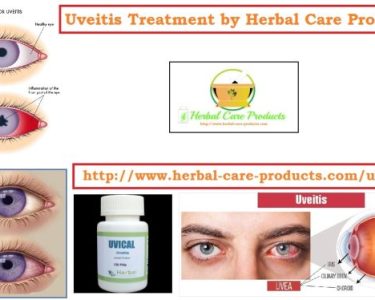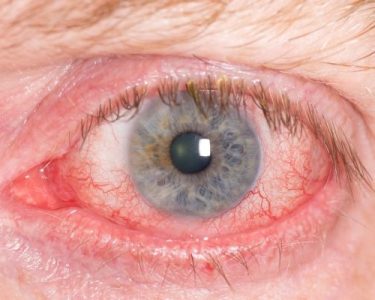What is Uveitis?
Uveitis is a medical term used to describe inflammation of the uvea, the middle layer of the eye located between the sclera (the white of the eye) and the retina (the light-sensitive tissue at the back of the eye). This layer includes three important parts: the iris (the colored part of the eye), the ciliary body (which produces the fluid in the eye and helps control focusing), and the choroid (which contains blood vessels that nourish the retina). Uveitis can affect one or both eyes and can occur at any age, although it is more commonly seen in individuals between the ages of 20 and 60.

When someone has uveitis, it means that some or all parts of the uvea are inflamed, and this inflammation can spread to other parts of the eye, including the lens, retina, optic nerve, and vitreous. This inflammation can lead to serious complications, including vision loss if not properly treated. Depending on the location of the inflammation within the eye, uveitis is classified into four main types: anterior uveitis, intermediate uveitis, posterior uveitis, and panuveitis.
Types of Uveitis
- Anterior Uveitis: This is the most common form and involves inflammation of the iris and the front part of the ciliary body. It is sometimes referred to as iritis. Anterior uveitis can develop suddenly and typically causes eye redness, pain, sensitivity to light (photophobia), and blurred vision.
- Intermediate Uveitis: This affects the vitreous and the peripheral retina. Symptoms may include floaters (dark spots or lines in the vision) and blurred vision. Unlike anterior uveitis, intermediate uveitis may not cause redness or pain.
- Posterior Uveitis: This form affects the choroid and the retina at the back of the eye. It is less common but more serious than anterior uveitis. Symptoms often include decreased vision and floaters. It may be caused by infections or systemic inflammatory diseases.
- Panuveitis: This is when all layers of the uvea are inflamed. Panuveitis can cause a combination of symptoms from all the other types and may significantly impair vision.
Causes of Uveitis
Uveitis can be caused by a wide variety of factors. In some cases, the exact cause is never determined. However, known causes include:
- Autoimmune Diseases: Conditions like rheumatoid arthritis, ankylosing spondylitis, lupus, sarcoidosis, and inflammatory bowel disease (IBD) can lead to uveitis.
- Infections: Bacterial, viral, fungal, and parasitic infections can all cause uveitis. Common culprits include herpes simplex, cytomegalovirus (CMV), toxoplasmosis, syphilis, tuberculosis, and Lyme disease.
- Eye Injuries or Surgery: Trauma to the eye or complications from eye surgery can trigger inflammation.
- Cancer: Rarely, certain cancers that affect the eye or body can cause uveitis.
- Drug Reactions: Some medications may cause uveitis as a side effect.
Symptoms of Uveitis
The symptoms of uveitis can vary depending on the type and severity of the inflammation. Common symptoms include:
- Eye redness
- Eye pain
- Blurred vision
- Light sensitivity (photophobia)
- Floaters (dark, floating shapes in the vision)
- Decreased vision
Symptoms may appear suddenly and worsen quickly, especially in acute cases. Chronic uveitis may develop more gradually and last for months or even years.
10 Natural Remedies for Uveitis
Natural Remedies for Uveitis offer a holistic approach to managing this inflammatory eye condition. Uveitis, which affects the middle layer of the eye, can lead to redness, pain, blurred vision, and light sensitivity. While medical treatment is essential, incorporating natural remedies may help reduce inflammation and support eye health. Herbal Supplement for Uveitis like turmeric, which contains curcumin, have anti-inflammatory properties that may help ease symptoms. Omega-3 fatty acids found in fish oil are also known to support eye health and may lower inflammation levels in the body.
Other natural remedies for uveitis include a diet rich in antioxidants from fruits and vegetables, which can help fight oxidative stress linked to eye inflammation. Lifestyle changes such as stress management through yoga or meditation can also support the immune system and potentially reduce flare-ups. It’s important to note that while these remedies can complement conventional treatment, they should never replace professional medical care. Always consult with a healthcare provider before starting any new natural remedy for uveitis.
Here are 10 Natural Remedies for Uveitis that may help support eye health and reduce inflammation naturally:
Rose Water for Uveitis: A Gentle Aid or Just a Myth?
Uveitis, an inflammation of the uvea (the middle layer of the eye), can cause redness, pain, blurred vision, and light sensitivity. While medical treatment typically involves corticosteroids or immunosuppressants, some people explore natural remedies like rose water to help soothe the eyes. But is rose water really helpful for uveitis, or is it just a popular myth?
What is Rose Water?
Rose water is made by distilling rose petals with steam. It’s known for its cooling, anti-inflammatory, and antioxidant properties, and has been used traditionally in skincare and eye care for centuries.
Can Rose Water Help with Uveitis?
Let’s look at the facts:
✅ Potential Benefits:
-
Anti-inflammatory effects – Rose water contains compounds like flavonoids and terpenes, which may reduce general inflammation.
-
Soothing sensation – When applied around the eyes (not directly inside), rose water can relieve tired, irritated eyes.
-
Antioxidants – These can help reduce oxidative stress, which is often linked to inflammatory conditions.
⚠️ Limitations & Risks:
-
Not a cure – Rose water cannot treat the root cause of uveitis, especially if the inflammation is due to infection, autoimmune disease, or trauma.
-
Eye sensitivity – Direct contact with the eye can lead to irritation or allergic reactions, especially if the rose water isn’t sterile or pure.
-
Delay in proper treatment – Relying on rose water instead of prescribed medication can make uveitis worse, potentially leading to vision loss.
How to Use Rose Water Safely (If You Choose To)
-
Use only pure, preservative-free, sterile rose water labeled safe for ophthalmic use.
-
Apply with a cotton pad around closed eyelids for a soothing effect.
-
Never drop unsterile rose water directly into the eyes.
Final Verdict
Rose water may offer mild, temporary relief for eye discomfort but should never replace medical treatment for uveitis. Always consult an ophthalmologist before trying any natural remedy. Uveitis can be serious, and proper diagnosis and treatment are essential for protecting your vision.

Milk for Uveitis: Can It Really Help?
Uveitis is a serious eye condition involving inflammation of the uvea, the middle layer of the eye. It can cause pain, redness, blurred vision, and even lead to vision loss if not treated properly. While conventional treatment usually includes corticosteroids or immunosuppressants, some people explore natural remedies, including milk, to soothe inflammation. But does milk have any real benefit for uveitis?
Why Do People Consider Milk for Uveitis?
Milk is often associated with overall health and healing in traditional medicine systems. Here’s why some consider it:
🌿 Beliefs Behind Milk as a Remedy:
-
Anti-inflammatory properties – Milk contains vitamins like vitamin D and calcium, both known to support the immune system.
-
Ayurvedic perspective – In Ayurvedic medicine, warm milk with herbs like turmeric or saffron is believed to have healing properties for inflammatory conditions.
-
Cooling nature – Cold milk is sometimes used as a compress for puffy or irritated eyes.
What Does Science Say?
While milk is nutritious and supports general health, there is no scientific evidence showing that drinking milk or applying milk can treat or relieve uveitis specifically.
✅ Potential Health Benefits of Milk:
-
Rich in vitamins – Such as vitamin A, which supports eye health.
-
Supports immunity – May help in maintaining overall immune balance, which is important in autoimmune-related uveitis.
⚠️ But Be Careful:
-
Not a treatment – Milk cannot reduce the inflammation in the eye caused by uveitis.
-
Possible food sensitivity – In some people, dairy can trigger immune responses or allergies, which may worsen inflammation.
-
No direct eye application – Applying milk directly into the eye is not safe and could introduce bacteria, causing infection.
How Milk May Be Used (Indirectly):
While milk won’t cure uveitis, it may support your body when used this way:
-
Drink warm turmeric milk to support general immunity.
-
Add vitamin-rich milk to your diet, especially if you’re deficient in nutrients important for eye health.

Salt and Water for Uveitis: Is It Safe or Harmful?
Uveitis is an inflammation of the uvea — the middle layer of the eye — that can lead to eye pain, redness, blurred vision, and even vision loss if not treated properly. People seeking natural or home remedies sometimes wonder about using salt and water (saline solutions) to help with symptoms. But is this approach actually safe or effective for uveitis?
🌊 What Is a Salt and Water Solution?
A mixture of salt and water, also known as saline, is commonly used to rinse the eyes, especially in cases of:
-
Irritation from dust or allergens
-
Dry eyes
-
Mild infections
Sterile saline eye drops are available over-the-counter and are made to match the natural salt content of your tears.
💡 Can Salt and Water Help with Uveitis?
✅ Possible Benefits:
-
Soothing for surface irritation – Rinsing the eyes with sterile saline may help wash out mild irritants.
-
Moisturizing effect – Helps relieve dryness and temporary discomfort.
⚠️ Limitations & Risks:
-
Does NOT treat uveitis – Uveitis affects the inner layers of the eye, and salt water cannot reach or reduce this deeper inflammation.
-
Improper mixtures can harm – Making homemade saline that’s too salty or unclean can irritate or infect the eye.
-
Delays in proper care – Relying on saline instead of prescribed medications like corticosteroids can lead to serious complications, including vision loss.
🧴 Safe Ways to Use Salt and Water (If Needed)
If you’re using saline to soothe your eyes alongside your doctor’s treatment:
-
Use only sterile saline eye drops from a pharmacy.
-
Never use homemade salt water in your eyes, unless advised and instructed by a healthcare provider.
-
Do not use salt and water as a replacement for uveitis medication.

FennelSeeds
Fennel seeds are effective for eye tonic. They are eaten raw to enhance eye health. Apply it directly as eye drops for getting rid of eye inflammation and swelling.

Apple Cider Vinegar
Apple Cider Vinegar which contains malic acid which plays an important role for cure the bacterial infections. Mix 1 tbsp of apple cider vinegar in a cup of water. Take a cotton ball and dip it in solution and clean your eyes with it.

Aloe Vera
Aloe Vera is a medicinal plant which is very popularly used to treat eye infections. Aloe Vera which also have anti bacterial property which accelerates the treat the red eyes Uveitis Treatment Naturally.

Raspberry Leaves
You prepare tea by boil a raspberry leave. Steep this for a some minutes. Strain and allow it to cool. Apply it as a cold compress over the eyes for 10-15 minutes for 2 to 3 days. Repeat the process if redness persists.

Eyebright Herb
Eyebright herb which is also called as Euphrasia officinalis and it is very popularly used Herbal Treatment for Uveitis. That is why eye drops made from this herb can cures red eye infection

Goldenseal
Goldenseal used to treat different eye infections.. Boil 2 tbsp of goldenseal in a cup of water. Strain this mixture and use it to rinse your eyes when it gets cools.

Bilberry
Bilberry has very high amount of flavonoids and antioxidants. The antioxidants which increase the blood flow in vessels around the eyes and which helps to cure red eyes. Consume bilberry after consulting a physician or put bilberry extract in your eyes twice daily, for 2 to 3 days till the redness disappears.





